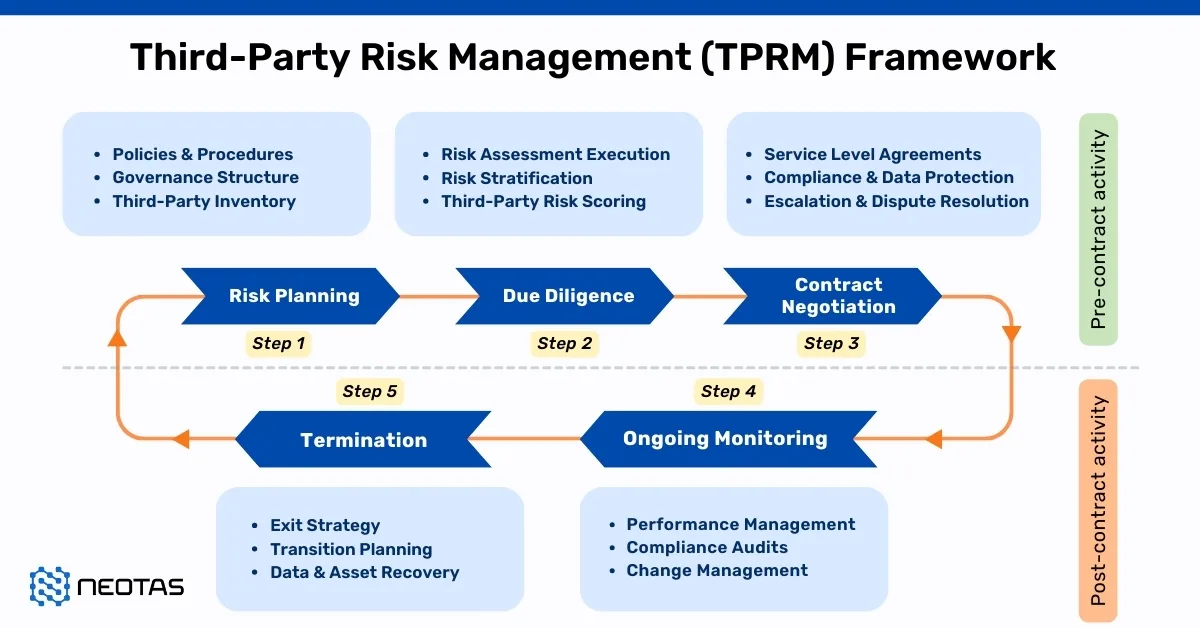What is Financial Intelligence Unit?
Financial Intelligence Units (FIUs) are instrumental in the global fight against financial crime. These specialised governmental bodies are tasked with gathering, scrutinising, and disseminating crucial financial information, primarily related to money laundering and terrorist financing. Emerging in the early 1990s, FIUs act as intermediaries between the financial sector and law enforcement or judicial authorities. Their core function is to receive, analyse, and distribute Suspicious Activity Reports (SARs) submitted by financial institutions and reporting organisations. These reports flag potential risks of money laundering or terrorist financing within customer transactions, prompting further investigation in collaboration with law enforcement.
Beyond their primary role, FIUs hold additional responsibilities. They have the authority to temporarily halt transactions, ensure compliance with Anti-Money Laundering/Countering the Financing of Terrorism (AML/CFT) obligations, and provide training and guidance on AML/CTF regulations. Moreover, they offer timely updates on prevalent financial crime trends and best practices.
In recent years, the surge in financial crime has prompted global action. Money laundering and terrorism financing activities have become pervasive, necessitating robust mechanisms to counteract these threats. This is where the concept of FIUs gains paramount significance.
Financial crime poses a profound challenge to the stability and integrity of global financial systems. Governments and regulatory bodies respond by implementing stringent anti-money laundering (AML) regulations and conducting regular risk assessments. At the core of these efforts are FIUs, specialised units that gather, analyse, and disseminate crucial financial information, focusing on identifying suspicious activities linked to money laundering and terrorism financing. They play a pivotal role in maintaining the integrity and security of the global financial architecture.
The establishment of FIUs reflects a strategic response to the evolving landscape of financial crime, providing a centralised hub for the evaluation and dissemination of critical financial data. Through their actions, FIUs significantly contribute to fortifying the financial sector against the insidious threats of money laundering and terrorism financing.
In the subsequent sections, we will embark on an in-depth exploration of Financial Intelligence Units, dissecting their roles, functions, and the broader impact they have on the global fight against financial crime. By understanding the intricate workings of FIUs, we gain valuable insights into the measures taken by governments and regulatory bodies to safeguard the integrity of financial systems worldwide.
The Role of Financial Intelligence Units (FIUs)
Financial Intelligence Units (FIUs) play a pivotal role in the global fight against financial crime. Their specialised functions are instrumental in safeguarding the integrity of the financial system and deterring illicit activities such as money laundering and terrorism financing.
Receiving and Analysing Suspicious Activity Reports (SARs)
At the heart of an FIU’s mandate is the reception and careful examination of Suspicious Activity Reports (SARs). These reports serve as the frontline defense against potential money laundering and terrorist financing activities. Financial institutions and reporting organisations diligently submit SARs when they encounter transactions that raise suspicion. The FIU, equipped with a team of skilled analysts, meticulously evaluates the contents of each report to discern patterns, anomalies, and potential red flags.
This critical assessment process involves a thorough examination of the transaction details, the parties involved, and any unusual or unexplained behavior. Analysts are trained to identify subtle indicators that may point towards illicit financial activity. In cases where further investigation is warranted, the FIU may collaborate with law enforcement agencies to take appropriate action.
Coordinating with Law Enforcement Agencies
FIUs serve as a vital bridge between the financial sector and law enforcement authorities. Their expertise in financial analysis, coupled with a deep understanding of money laundering and terrorist financing methods, enables them to provide invaluable support to law enforcement agencies. This collaboration ensures that suspicious activities are promptly investigated, potentially leading to the apprehension of individuals involved in criminal enterprises.
Additional Functions of FIUs
In addition to their core responsibilities, FIUs are entrusted with ancillary functions that further fortify the financial sector’s defenses. These include the authority to temporarily halt transactions, conduct compliance checks to ensure adherence to Anti-Money Laundering/Countering the Financing of Terrorism (AML/CFT) obligations, and provide training and guidance to authorised organisations regarding AML/CTF regulations. Moreover, FIUs serve as a wellspring of knowledge, disseminating updates on prevailing financial crime trends and best practices to empower reporting entities in their efforts to combat illicit financial activities.
Through these multifaceted functions, FIUs play a pivotal role in maintaining the integrity of the financial system. Their expertise, coupled with their capacity to mobilise resources and collaborate with law enforcement, positions them as indispensable actors in the collective endeavor to combat financial crime on a global scale. In the subsequent sections, we will delve deeper into the specific functions and responsibilities that define the operations of FIUs.
Primary objectives of Financial Intelligence Unit
Financial Intelligence Units (FIUs) are established with a clear and defined purpose, one that is fundamental in the global effort to combat financial crime. Their primary objectives encompass several key areas, each playing a critical role in the overarching mission.
Identifying Financial Transactions Linked to Criminal Activities
The foremost objective of an FIU is to meticulously scrutinise financial transactions to detect any potential association with criminal activities. This includes activities such as tax evasion, money laundering, and corruption. By employing advanced analytical techniques and leveraging their expertise in financial forensics, FIUs are adept at identifying transactions that exhibit suspicious patterns or indications of illicit origins.
Generating Suspicious Transaction Reports (STRs)
In pursuit of their mandate, FIUs have the authority to generate Suspicious Transaction Reports (STRs). These reports serve as a formal documentation of identified suspicious activities. They contain detailed information about the transaction, the parties involved, and any pertinent contextual details. STRs play a crucial role in the investigative process, providing law enforcement agencies with valuable leads to further pursue and potentially apprehend those involved in criminal enterprises.
Understanding the Financing of Criminal and Terrorist Organisations
FIUs operate on the premise that gaining insights into the financing methods of criminal and terrorist organisations is instrumental in disrupting their operations. By scrutinising financial flows and tracing the movement of funds, FIUs contribute significantly to the broader efforts aimed at dismantling these illicit networks. This intelligence enables law enforcement agencies to strategically target and disrupt the financial infrastructure that sustains criminal enterprises.
Enhancing Global Cooperation in the Fight Against Financial Crimes
FIUs do not operate in isolation. They form part of a larger network of financial intelligence units, both at the national and international levels. Through intergovernmental networks, such as the Egmont Group, FIUs share vital information related to money laundering and terrorism financing. This collaborative approach strengthens the collective resolve to combat financial crimes on a global scale, ensuring that illicit activities are met with a unified and coordinated response.
The aim of the Financial Intelligence Unit is to act as a sentinel, diligently monitoring the financial landscape for signs of criminal activity. Through their analytical prowess, investigative acumen, and collaborative efforts, FIUs contribute significantly to the global mission of safeguarding the integrity of the financial system. In the subsequent sections, we will delve deeper into the various functions and mechanisms through which FIUs accomplish these objectives.
The Egmont Group and its Relationship with FIUs
The Egmont Group stands as a cornerstone in the collaborative efforts of Financial Intelligence Units (FIUs) worldwide. Established in 1995, this unified structure serves as a secure platform for the exchange of financial information among FIUs. Comprising 159 FIUs from various jurisdictions, the Egmont Group plays a pivotal role in the development and fortification of anti-money laundering systems.
Ensuring Secure Financial Transfer
The primary mission of the Egmont Group is to facilitate secure and confidential exchanges of financial intelligence between FIUs. This secure platform is fundamental in the collective endeavor to combat money laundering and terrorist financing. It provides a trusted space where sensitive information can be shared among FIUs, enabling them to pool their resources and expertise in the fight against financial crime.
Strengthening International Cooperation
The Egmont Group serves as a linchpin in the broader framework of international cooperation. Through this platform, FIUs transcend national borders to collaborate on matters of mutual interest. This includes the sharing of critical intelligence related to money laundering and terrorism financing, as well as strategic insights into emerging trends and methodologies employed by criminal networks. Such collaborative efforts are instrumental in staying ahead of evolving threats in the realm of financial crime.
Principles of Information Exchange
Within the Egmont Group, specific principles govern the exchange of information in money laundering cases. These principles uphold the confidentiality and security of shared information. They also provide a legal basis for FIUs to engage in reciprocal exchanges, ensuring that sensitive data remains protected and utilised exclusively for lawful purposes.
Empowering FIUs to Combat Financial Crimes
The Egmont Group empowers FIUs by providing a structured framework for international cooperation. Through regular meetings, working groups, and specialised forums, FIUs have the opportunity to exchange knowledge, share best practices, and collectively address challenges. This collaborative approach amplifies the impact of individual FIUs, enabling them to leverage the collective wisdom and resources of the global network.
The Egmont Group serves as a catalyst for enhanced collaboration and information sharing among FIUs worldwide. It embodies the collective commitment to safeguarding the integrity of the global financial system, ensuring that illicit financial activities are met with a unified and resolute response. As we continue our exploration of Financial Intelligence Units, it becomes evident that this collaborative framework plays a pivotal role in their effectiveness and impact. In the subsequent sections, we will further dissect the various types of FIUs and the specific functions they fulfill within the global landscape of financial intelligence.
Types of Financial Intelligence Unit (FIUs) according to the Egmont Group
Financial Intelligence Units (FIUs) can be categorised into distinct types, each with its own set of strengths and operational nuances. These classifications, as recognised by the Egmont Group, delineate the diverse roles and responsibilities that FIUs undertake in their pursuit of combating financial crime.
Administrative-Type FIUs
Administrative-Type FIUs operate within an administrative or agency framework, distinct from law enforcement or judicial authorities. These units function as intermediaries, acting as a “buffer” between the financial sector and law enforcement. Their primary focus lies in the receipt, analysis, and dissemination of Suspicious Activity Reports (SARs). Administrative-Type FIUs may or may not be responsible for issuing Anti-Money Laundering/Countering the Financing of Terrorism (AML/CFT) regulations and supervising compliance. Their perceived independence from law enforcement and prosecution makes them a preferred choice for the banking sector and other reporting entities.
Law-Enforcement-Type FIUs
In contrast, Law-Enforcement-Type FIUs are integrated within a law-enforcement agency, endowed with corresponding law-enforcement powers. These units operate in close proximity to other law enforcement entities, benefiting from shared expertise and information sources. They possess the authority to freese transactions and seise assets, bolstering their capacity to take swift and decisive action. Additionally, the exchange of information with fellow law-enforcement agencies is expedited, streamlining the process of detecting and preventing financial crimes.
Judicial or Prosecutorial-Type FIUs
Judicial or Prosecutorial-Type FIUs find their home within the judicial arm of government. These units emphasise their role in the prosecution of financial crime. Endowed with both investigative and prosecutorial powers, they are intricately connected to the judicial system. This alignment grants them access to the resources and expertise of the judiciary, facilitating a comprehensive approach to financial crime prosecution. Judicial or Prosecutorial-Type FIUs thrive in environments with well-established judicial systems, enabling a seamless integration of investigative and prosecutorial functions.
Mixed or Hybrid FIUs
Mixed or Hybrid FIUs represent a fusion of two or more of the aforementioned FIU types. This amalgamation capitalises on the respective strengths of each type, effectively mitigating their individual limitations. The effectiveness of a Mixed FIU hinges on the specific combination of functions it incorporates. For example, a hybrid unit that combines administrative and law-enforcement attributes benefits from the independence of the former and the law-enforcement powers of the latter. This dynamic integration affords Mixed FIUs a unique operational framework tailored to the specific needs of their jurisdiction.
Understanding the distinctions between these FIU types provides invaluable insights into the diverse approaches adopted by jurisdictions in combating financial crime. Each type brings its own set of capabilities and strengths, aligning with the broader legal and institutional framework within which it operates. In the subsequent sections, we will delve deeper into the establishment and core functions of FIUs, shedding further light on their pivotal role in the global fight against financial crime.
Core Functions of a Financial Intelligence Unit (FIU)
The core functions of a Financial Intelligence Unit (FIU) are instrumental in achieving its overarching mission of combating financial crime. These functions are meticulously designed to gather, analyse, and disseminate critical financial information, serving as the linchpin in the global effort to safeguard the integrity of the financial system.
Receiving Transaction Reports
1. Who Must Report?
- Financial institutions, including banks, insurance, and securities companies, bear a primary responsibility in reporting suspicious transactions. Additionally, non-financial businesses and professions such as casinos, real estate agents, lawyers, notaries, accountants, and trust service providers are mandated to submit reports.
2. What Is to Be Reported?
- Reports encompass a wide range of transactions, including Suspicious Transaction Reports (STRs), transactions related to terrorism financing, those above specified monetary thresholds, and cross-border transportation of currency and bearer negotiable instruments.
3. Rules Related to Reporting Entities
- Stringent rules govern the reporting process, emphasising confidentiality of customer information, prohibitions against “tipping off,” and providing immunity to reporting entities and their staff acting in good faith.
4. Form and Contents of Reports to FIU
- Reports submitted to the FIU must adhere to specified formats, ensuring clarity and completeness of information.
5. Improving Flow and Quality of Reports
- Outreach actions, administrative sanctions, and criminal sanctions are mechanisms employed to enhance the reporting process, promoting a culture of compliance and diligence.
Analysing Reports
1. Tactical Analysis
- FIUs conduct tactical analysis utilising a diverse array of data sources. These include their own repository of data, publicly available information, government-held databases, additional information from original reporting entities, and collaboration with other FIUs.
2. Operational Analysis
- Operational analysis involves a comprehensive evaluation of specific cases and activities, providing critical insights into the methodologies employed by criminals.
3. Strategic Analysis
- Strategic analysis entails a broader examination of trends, patterns, and emerging threats within the financial landscape. It aids in the formulation of proactive measures to combat evolving forms of financial crime.
Disseminating Reports
1. Transmitting Reports for Investigation or Prosecution
- FIUs play a pivotal role in facilitating the flow of information to law enforcement agencies for further investigation or prosecution. This involves the timely and secure transmission of relevant reports.
2. Sharing Information with Other Domestic Agencies
- Collaboration with other domestic agencies, such as regulatory bodies and law enforcement entities, is essential in ensuring a coordinated and comprehensive response to financial crime.
3. International Information Sharing
- Legal frameworks govern the exchange of information between FIUs on an international scale. This collaboration is facilitated through established channels and intergovernmental networks like the Egmont Group.
These core functions collectively constitute the backbone of an FIU’s operational framework. By diligently executing these tasks, FIUs contribute significantly to the global mission of combatting financial crime, fortifying the financial sector’s defenses against illicit activities. In the subsequent sections, we will delve into additional functions of FIUs and strategies to enhance their effectiveness.
Other Functions of a Financial Intelligence Unit (FIU)
While the core functions of a Financial Intelligence Unit (FIU) form the bedrock of its operations, there are additional responsibilities that further fortify its effectiveness in combatting financial crime.
Monitoring Compliance with AML/CFT Requirements
- FIUs take on a supervisory role in ensuring that reporting entities adhere to Anti-Money Laundering/Countering the Financing of Terrorism (AML/CFT) requirements. This entails establishing and overseeing AML/CFT supervision arrangements, and in some cases, directly supervising reporting entities.
Blocking Transactions and Freezing Accounts
- In certain jurisdictions, FIUs have the authority to issue orders to block suspicious transactions and freeze accounts linked to suspected criminal activities. This power is wielded judiciously, providing a crucial tool in disrupting illicit financial flows.
Training for Staff of Reporting Institutions
- FIUs play an educational role, providing training and guidance to personnel within reporting institutions. This equips them with the knowledge and skills necessary to identify and report suspicious activities in compliance with AML/CFT regulations.
Conducting Research
- FIUs engage in research initiatives to deepen their understanding of evolving financial crime trends, methodologies, and typologies. This knowledge serves as a valuable resource in staying ahead of emerging threats.
Enhancing Public Awareness of AML/CFT Issues
- Disseminating information to the public regarding the risks and consequences of money laundering and terrorism financing is a critical component of an FIU’s efforts. This heightened awareness empowers individuals and businesses to play an active role in combatting financial crime.
Collecting Relevant Data
- FIUs work to collect and catalog pertinent data related to financial transactions and activities. This comprehensive database serves as a valuable repository for analysis and investigation.
Identifying Opportunities for Improvement
- Through continuous evaluation and assessment, FIUs identify areas for improvement in their operations and the broader AML/CFT framework. This proactive approach ensures that strategies remain dynamic and adaptive to evolving threats.
These supplementary functions augment the impact and effectiveness of an FIU in combatting financial crime. By engaging in these activities, FIUs bolster their capacity to safeguard the integrity of the financial system and protect against illicit activities. In the subsequent sections, we will explore strategies to further enhance the effectiveness of FIUs and considerations for international assessments of these critical entities.
Key aspects of Financial Intelligence Units (FIUs) and their importance in the global fight against financial crimes:
- Reporting Entities and Obligations: In most jurisdictions, certain entities, such as banks, financial institutions, money service businesses, and designated non-financial businesses and professions (DNFBPs), are required to report suspicious transactions and certain cash transactions to the FIU. These entities act as the first line of defense against financial crimes by monitoring customer activities and identifying potentially suspicious behavior.
- Role in Combating Money Laundering: One of the primary focuses of FIUs is to combat money laundering, a process by which illicitly obtained funds are made to appear legitimate. Money laundering facilitates criminal activities, such as drug trafficking, corruption, and terrorism. By analysing transaction data and identifying patterns indicative of money laundering, FIUs play a critical role in breaking the financial networks of criminals and recovering illicitly acquired assets.
- Fighting Terrorist Financing: In addition to tackling money laundering, FIUs also contribute significantly to efforts aimed at combating terrorist financing. Terrorist organisations often rely on financial networks to fund their operations, and by monitoring and analysing financial transactions, FIUs can help disrupt these channels and prevent funds from reaching these nefarious groups.
- Financial Intelligence Exchange: The effectiveness of FIUs relies on their ability to share information and intelligence with other domestic and international agencies. Many countries are part of international networks of FIUs that facilitate the exchange of financial intelligence across borders. This cooperation enhances the global fight against financial crimes and ensures a more comprehensive understanding of cross-border criminal activities.
- Technology and Data Analytics: The scale and complexity of financial transactions make it challenging to identify suspicious activities manually. FIUs leverage advanced technologies and data analytics tools to process vast amounts of financial data rapidly. These technologies help detect patterns, anomalies, and trends that might not be evident through conventional methods, thus improving the efficiency of their operations.
- Assessing Emerging Risks: Financial crimes are continuously evolving, and new methods of illicit finance regularly emerge. FIUs play a vital role in identifying and assessing emerging risks and vulnerabilities in the financial system. By staying ahead of these threats, they can provide recommendations to policymakers and financial institutions on necessary adjustments to anti-money laundering and counter-terrorism financing regulations.
- Strengthening Financial Systems: The work of FIUs helps maintain the integrity and stability of financial systems. By preventing the entry of illicit funds into the legitimate economy, they safeguard the reputation and credibility of financial institutions and bolster investor confidence.
- Public Awareness and Outreach: FIUs also engage in public awareness campaigns to educate businesses, professionals, and the general public about the risks of financial crimes and the importance of reporting suspicious transactions. Raising awareness helps create a broader network of stakeholders actively involved in the fight against financial crimes.
Enhancing the Effectiveness of FIUs
In the ever-evolving landscape of financial crime, Financial Intelligence Units (FIUs) must continually seek ways to enhance their effectiveness. This involves a combination of strategic initiatives and operational adaptations aimed at fortifying their capabilities.
- Collecting Relevant Data
The cornerstone of effective FIU operations lies in the collection of pertinent financial data. This encompasses a comprehensive gathering of transaction reports, suspicious activity alerts, and other relevant information. A robust data repository serves as the bedrock for subsequent analysis and investigation.
- Identifying Opportunities for Improvement
Regular assessments and evaluations are imperative to identify areas for improvement. This involves a thorough review of operational processes, analytical techniques, and technological infrastructure. By pinpointing areas of enhancement, FIUs can refine their strategies and stay ahead of evolving financial crime trends.
- Leveraging Technology and Analytical Tools
The integration of advanced technologies and analytical tools is paramount in bolstering the analytical capabilities of an FIU. Data analytics, artificial intelligence, and machine learning are instrumental in sifting through vast datasets to discern patterns, anomalies, and potential red flags.
- Strengthening International Collaboration
FIUs operate within a global ecosystem, and international cooperation is essential in combatting transnational financial crime. Actively participating in intergovernmental networks like the Egmont Group facilitates the exchange of critical intelligence and best practices, ensuring a unified response to emerging threats.
- Engaging in Cross-Sectoral Partnerships
Collaboration with other stakeholders in the financial sector, including regulatory bodies, law enforcement agencies, and reporting entities, is pivotal. This multi-agency approach fosters a holistic understanding of financial crime risks and enables a coordinated response.
- Continuous Training and Capacity Building
Investing in the professional development of FIU staff is paramount. Training programs, workshops, and knowledge-sharing initiatives equip personnel with the skills and expertise needed to navigate the complex landscape of financial crime.
- Implementing Proactive Outreach Initiatives
Raising awareness among reporting entities and the public at large is instrumental in combatting financial crime. Outreach programs serve to educate stakeholders about the risks associated with money laundering and terrorism financing, empowering them to play an active role in detection and prevention.
- Regularly Reviewing Legal and Regulatory Frameworks
Staying abreast of evolving legal and regulatory frameworks is imperative for FIUs. This involves periodic reviews and assessments to ensure that policies align with international standards and best practices.
By actively pursuing these strategies, FIUs can fortify their effectiveness in combatting financial crime. This proactive approach not only safeguards the integrity of the financial system but also contributes to the broader mission of preserving the stability and security of the global economy. In the subsequent section, we will explore the international assessments conducted on FIUs, underscoring their significance in the global fight against financial crime.
– Conclusion –
What is Financial Intelligence Unit?
Financial Intelligence Units (FIUs) stand as linchpins in the global effort to combat financial crime. Their role in gathering, analysing, and disseminating critical financial information is paramount in safeguarding the integrity of the financial system.
Through meticulous planning and strategic decision-making, FIUs are established as central entities dedicated to receiving and evaluating suspicious activity reports. They operate within a framework that aligns with the legal and institutional context of their respective jurisdictions.
The Egmont Group, with its global network of 159 FIUs, provides a secure platform for the exchange of financial intelligence, strengthening international cooperation in the fight against money laundering and terrorist financing.
FIUs come in various types, each with its own strengths and operational nuances. Whether administrative, law-enforcement, judicial, or a hybrid model, the choice is determined by the jurisdiction’s legal and institutional framework, as well as its specific objectives in combatting financial crime.
Key functions of an FIU include receiving transaction reports, analysing the gathered information, and disseminating reports for further investigation or prosecution. This process is supported by strict rules and protocols to ensure confidentiality and compliance.
In addition to core functions, FIUs play crucial roles in monitoring compliance with AML/CFT requirements, blocking suspicious transactions, and freezing accounts linked to criminal activities. They also provide training, conduct research, and raise public awareness of AML/CFT issues.
To enhance their effectiveness, FIUs continuously collect relevant data, identify opportunities for improvement, leverage technology, and strengthen international and cross-sectoral collaborations. They also undergo regular international assessments to ensure compliance with established standards.
FIUs serve as pivotal entities in the global fight against financial crime. Their contributions are essential in maintaining the stability and security of the global economy. By adhering to international standards, embracing technological advancements, and fostering collaborative partnerships, FIUs play a critical role in preserving the integrity of the financial system.
Neotas Due Diligence Solutions and Financial Intelligence Unit UK can help you Handle Your Regulatory Diligence
Safeguarding your organisation against potential fraud or financial misconduct is paramount. Conducting regulatory due diligence is the most effective and comprehensive method to verify the legitimacy and compliance of both your organisation and its business partners. Partnering with Neotas ensures a thorough and meticulous process, providing you with peace of mind and confidence in your business relationships.
Neotas plays a crucial role in assisting businesses, financial institutions, and other stakeholders in combating financial crimes and ensuring compliance with anti-money laundering (AML) and counter-terrorism financing (CTF) regulations. Financial Intelligence involves using advanced technology and data analysis techniques to gather and analyse financial data, uncover suspicious activities, and provide actionable insights to support decision-making and investigations.
- Schedule a Call with Neotas Financial Intelligence Unit. We would be happy to take this opportunity to discuss tailored solutions, share expert guidance, and address specific financial intelligence needs for your organisation.
References and Important Links:
- UK Financial Intelligence Unit
- NCA’s SAR Online Portal
- Financial Intelligence Unit
- Forensic Investigation
- Investment Due Diligence
- Using Open Source Intelligence To Battle Fin Crime
- What is Financial Intelligence Unit (FIU)
- UK Financial Intelligence Unit (UKFIU)
- Forensic Investigation And Financial Audit
- Neotas Partners with PwC to Combat Financial Crime
- Neotas Partners with Graydon UK to Combat Commercial Fraud



 New Whitepaper and Checklist
New Whitepaper and Checklist
























